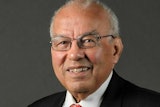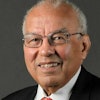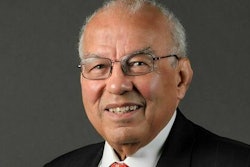RICHMOND, Va.
Denise Armstrong decided to home school her two sons and daughter because she thought she could do a better job of instilling her values in her children than the public school system could.
Years ago, she found herself the lone Black person at home-education gatherings, usually dominated by White Christian evangelicals. But gradually, she’s noticed more African-Americans joining the ranks.
The increase of Black families opting to educate their children at home, home-schooling advocates say, reflects a wider desire among families of all races to guide their children’s moral upbringing, but it also reflects growing concerns about issues such as subpar school conditions and preserving cultural heritage.
“About 10 years ago we started seeing more and more Black families showing up at conferences and it’s been steadily increasing since then,” said Michael Smith, president of the Home School Legal Defense Association, a national advocacy group.
Nationwide, about 1.1 million children were home schooled in 2003, or 2.2 percent of the school-age population. That was up from about 850,000, or 1.7 percent, in 1999, according to the U.S. Department of Education’s National Center for Education Statistics. A racial breakdown of home-schooled students isn’t yet available, the center said.
Michael Apple, an education professor at the University of Wisconsin who tracks home schooling, said that the numbers are still very low because most Black families lack the time or economic ability to home school. Much of the increase is seen in cities with a history of racial tensions, and where Black people feel alienated and marginalized, he said.
Some families decide to do it because public schools don’t all adequately teach African-American history and culture, some want to protect their children from school violence, “and for some, it’s all of this and religion,” Apple said.
Armstrong, of Chesterfield County, said she wants her 12-, 10- and 7-year-old children to have a “moral Judeo-Christian foundation” that public schools can’t provide.
Antoinette Williamson, a mother of four in Clarke County, says she has things in common with White home schooling parents, including being born-again Christians, but there’s still a need to associate with other African-American families and to make sure their children can get to know other Black children.
“The image they see so much of the time is not a positive image of Black Americans, and being a minority in a minority where they do not see many people who look like them — there’s just a need to connect,” she said.
To help guide African-American families, Joyce Burges and her husband, Eric, started the National Black Home Educators Resource Association in 2000. She said many families were dissatisfied with their public schools, but were unaware that home schooling was legal.
Apple, the Wisconsin professor, acknowledged that home schooling benefits a limited number of Black children, but said that improving public education for the greatest number of students depends on mass mobilization by concerned parents.
“They’re trying as hard as they possibly can to protect their children, and for that they must be applauded,” Apple said. “But in the long run, protecting their own children may even lead to worse conditions for the vast majority of students who stay in public schools, and that’s a horrible dilemma.”
— Associated Press
© Copyright 2005 by DiverseEducation.com















